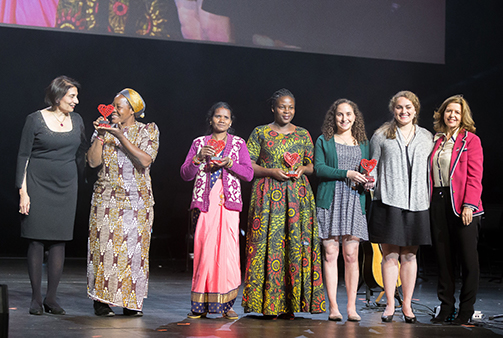Stop Hunger Event 2019
A crowdfunding operation raised an additional € 10,000 in donations to the five women's award winners and reinforced Stop Hunger's support for emergency assistance in Yemen.

A crowdfunding operation raised an additional € 10,000 in donations to the five women's award winners and reinforced Stop Hunger's support for emergency assistance in Yemen.
